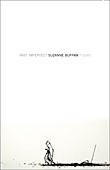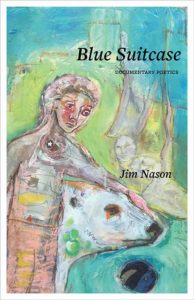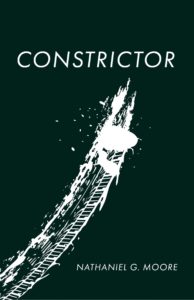by Zachariah Wells
 Our culture seems particularly keen on celebrating the emergence of new poets. Since the 1930s, we have heralded the arrival of new generations of poets in anthologies which are the textual equivalent to debutantes’ balls or high school graduation ceremonies: momentous to the participants and their families, but of very little longer term interest to serious readers. And, like the bad hairdos immortalized in class pictures, they more often than not cause embarrassment later in life.
Our culture seems particularly keen on celebrating the emergence of new poets. Since the 1930s, we have heralded the arrival of new generations of poets in anthologies which are the textual equivalent to debutantes’ balls or high school graduation ceremonies: momentous to the participants and their families, but of very little longer term interest to serious readers. And, like the bad hairdos immortalized in class pictures, they more often than not cause embarrassment later in life.
The latest manifestation of this coming of age yearbook is the Breathing Fire series edited by the parental duo of Patrick Lane and Lorna Crozier. It cannot be disputed that their efforts serve a purpose: in the wake of the most recent matriculation last year has come a bevy of book deals for the graduands. But the reason these anthologies are consistently disappointing is that the poetry manifests itself not in generational collective, but in scattered talented individuals. Generations are epitomized by shared characteristics, poetry by exceptionality, eccentricity, iconoclasm. And the generations presented in these books tend toward the reproductions of both the qualities and the flaws of preceding generations. In other words they represent the aesthetic biases of their immediate forebears.
But if one sets out to be different without an apprenticeship to past masters, one is apt to come off more freak than unique. “Woe to him,” as Lao Tzu said, “who willfully innovates while ignorant of the content.” Following in the shadow of poetry’s greats can of course be discomforting. Harold Bloom’s Anxiety of Influence deals with the psychological trauma poets – even great ones – undergo trying to swim from the sway of their mentors. Small wonder most poets prefer to pretend that they have little to learn from the distant poetic past: it makes their jobs a hell of a lot easier. That was the way things were done then; it doesn’t apply now, they seem to say. A comforting lie; a saving illusion, to borrow from Conrad.
Most of the contemporary poets I admire have developed a dialectical knack for folding lessons learned from their ancestors into the natter of contemporary settings and idioms. When baked, these experimental mixtures can create surprising and spontaneously fresh conceits, structures, and turns of phrase. When there is no new thing under the sun (Ecclesiastes 1:9), the key to originality is in the choice of antecedents as they combine with the particularity of the individual poet’s experience (including his or her heritage and present cultural milieu), thought and speech patterns. To borrow Auden’s distinction, these poets aren’t concerned so much with “originality” as they are with “authenticity.” They know that if they’re going to write the poems that are theirs to write, they must pick and choose those techniques others have used that best suit their own predilections and limits. Such poets don’t so much find a voice, as they forge a style. Respectful deference is rejected in favour of a bold blend of promiscuous intertextual fraternizing and thievery.
Over the past decade, while we’ve been showered with volumes of the soon-forgotten same-old, we’ve also been blessed with an improbably large number of remarkable debuts. Consider the following (by no means exhaustive) list:
Ken Babstock, Mean
David O’Meara, Storm Still
John MacKenzie, Sledgehammer
Karen Solie, Short Haul Engine
Alice Burdick, Simple Matter
Elise Partirdge, Fielder’s Choice
Geoffrey Cook, Postscript
Joe Denham, Flux
Steven Price, Anatomy of Keys
Anita Lahey, Out to Dry in Cape Breton
Elizabeth Bachinsky, Home of Sudden Service
David Hickey, In the Lights of a Midnight Plow
Christopher Patton, Ox
Gillian Wigmore, Soft Geography
Sachiko Murakami, The Invisibilit Exhibit
Jeramy Dodds, Crabwise to the Hounds
We like to pretend that poetry is not a competitive sport, that rivalry somehow cheapens the transcendent, ineffable, beauties of the art. But the fact that poets are many, readers are few, and work of lasting merit is very rare. The competition, like it or not, is fierce. The looks listed above each stake a pre-emptive claim on posterity; each says in its own way: “Of all the poets and all the books, you’ll be reading me twenty years hence.” Their best poems are not merely solidly crafted, but outstandingly authentic. Each poet raises the bar for their peers – and for their own future works. Even so, most, if not all, will be forgotten.
Two recent debut collections with a fighting chance are Pino Coluccio’s First Comes Love and Suzanne Buffam’s Past Imperfect. Neither book much resembles the other, nor do they sound like any one of their contemporaries; both provide pictures of a young poet hacking out his and her respective paths through the bush. And in both we see the flowering of individual style, as well as the blight of strong influence and stylistic habit.
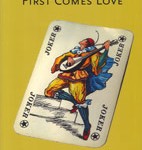 You don’t have to read very far in First Comes Love before a couple of surface qualities in Coluccio’s writing set it apart from the crowd. The first is his reliance on tightly rhyming metrical and stanzaic structures. In Breathing Fire 2, for instance, only one poet’s work, Steven Price’s, exhibits a similar predilection for stress and sound. To pinch again from Ecclesiastes 1:9: “That thing that hath been, it is that which shall be; and that which is done is that which shall be done.” It would be easy to dismiss Coluccio’s prosody as anachronistic sport, but with free verse’s reign very much on the wane, it seems to me far more avant-garde than old guard. The second thing that sets Coluccio apart is the whimsical and often bitingly ironic humour of his poems, which deliver their punchlines with timing that rivals the best stand-ups. One of Canada’s greatest exports is comedy and we are not without our funny men and women of verse (Jeanette Lynes, David McGimpsey, Stuart Ross, Bruce Taylor, David W. McFadden, and going back a bit further, George Johnston), but by and large we’re a pretty lugubrious crowd.
You don’t have to read very far in First Comes Love before a couple of surface qualities in Coluccio’s writing set it apart from the crowd. The first is his reliance on tightly rhyming metrical and stanzaic structures. In Breathing Fire 2, for instance, only one poet’s work, Steven Price’s, exhibits a similar predilection for stress and sound. To pinch again from Ecclesiastes 1:9: “That thing that hath been, it is that which shall be; and that which is done is that which shall be done.” It would be easy to dismiss Coluccio’s prosody as anachronistic sport, but with free verse’s reign very much on the wane, it seems to me far more avant-garde than old guard. The second thing that sets Coluccio apart is the whimsical and often bitingly ironic humour of his poems, which deliver their punchlines with timing that rivals the best stand-ups. One of Canada’s greatest exports is comedy and we are not without our funny men and women of verse (Jeanette Lynes, David McGimpsey, Stuart Ross, Bruce Taylor, David W. McFadden, and going back a bit further, George Johnston), but by and large we’re a pretty lugubrious crowd.
Coluccio provides a possible answer to why this might be so in his first poem, “The CEO of Heaven”:
Our first production schedule gave us
thirteen days, not six,
to roll the earth and heavens out.
But when the moon and lakes
and mountains led to overruns
I had to change the mix
and scrap a lot of the bells and whistles –
why swaths of sun and sex
were clipped clean out of Canada
and Niger’s on the rocks,
and way more women buy their bras
at Wal-mart than Saks.
Light verse – including nonsense, invective, and satire – in spite of being championed by such a poetic heavy-hitter as Auden, has been given short shrift in recent decades. Relying as it does on formally overdoing it (look at how Coluccio continues to play the “x” sound at the end of the even-numbered lines, a strategy he follows into the poem’s fourth stanza as well), vers de société was bound to be a casualty of the plain speech revolution in North American verse. “Light” has come to mean “insignificant.” It is our good fortune that Coluccio gives fashion the finger.
But Coluccio’s choice of verse forms should not be seen as mere rebellion. The subject of his poems, his themes of urban and suburban absurdity, family drama, sex and death require a light touch. These topics of course can and have been dealt with more gravely, but Coluccio seems to say there’s not much we can do about it, so why not laugh? There is a growing contingent of critics and writers who wonder why more poems aren’t written about the urban lives the majority of our citizens lead. The answer might be that the forms we’ve habitually cultivated are ill-suited to them. Consider the second half of Coluccio’s “Our Town”:
Money’s what they’re here for,
a merciless amount.
Dollars can be counted.
What can’t be doesn’t count.
Our many multiplexes
are lit up from L.A.
and KFC, the Gap –
our moods are made away.
The people here who like it
aren’t from Amsterdam,
or Prague or Honolulu,
but Orangeville. To them
there’s grit and grandeur here,
they like the hum and glitz.
But they go home for Christmas.
Their mothers knit them mitts.
For households in our city
home is somewhere else –
Pakistan or Portugal.
Their village pride is false
(since after all they left)
but makes them damn Toronto –
“I live here cuz I have to,
not because I want to.”
No one really lives here.
It’s only where I work.
I don’t like it either
but can’t afford New York.
This is brilliantly funny stuff, but like all good jokes, it works especially well because just beneath the bluff of its punchlines and rhymes are some incisive observations about our cultural environment. If Coluccio were to paraphrase this content in po-faced free verse, the result would be unbearably didactic opinionating. The form he has chosen, however, has all the right muscles developed to do this particular work. The conclusions he draws are at once axiomatic and delightful.
Other topics Coluccio tackles verge on the hackneyed: immigrant coming of age; the death of family members; tough luck in love. Such topics are open invitations to bathos if the poet’s quill is ill-trimmed, if he proceeds more from habit than hard work. But Coluccio’s lines are too tight to let sentimental-sausage-making scene with “ma,” a poem reminiscent in subject matter of Heaney’s piece about peeling potatoes with his mother, but unmistakably Coluccio in its diction and sounds:
Nothing is grosser than bowels.
You lift them out in fists
with ma from the sink
and set them out on towels.
They slither down your wrists
oozing mucous, and stink
and feel like worms and snails,
dense slobber in strands
the snipping scissors squish
through. Tacky trails
remain on straining hands.
Slippy and flippy as fish,
they glisten, slick socks,
the ends of them like lips,
once you’ve cut them up;
and each one gawks
when flexing fingertips
stretch them wide as a cup
around a stump of meat.
The sounds, dense as the meat stuffed in sausage skins, suck you in from line one, with its grossed out triple modulation of “o,” to the relentless sibilance (“dense slobber in strands/the snipping scissors squish”) and assonated play with “I” sounds. Everything is so tightly packaged and skillfully enjambed – such a perfect formal match for such subject matter – that you scarcely notice the abcabc defdef skin of rhyme that cases it all together. The scene is limned in language that is simultaneously demotic (“Nothing is grosser”), spontaneously inventive (“slippy and flippy”) and highly wrought. The subject matter is the occasion for this poem, but the writing itself is the main event; Coluccio takes the foulness of bowels and makes it dance on the palate.
When Coluccio pits his wit and verbal audacity against his own particular circumstances, the results are almost always fun, often dazzling and disarmingly moving. His poems are chock full of phrases and experiences that you could only get from a child of Italian immigrants working joe-jobs in present-day Toronto. But in several of the poems in First Comes Love, the persona and technique Coluccion employs feel more borrowed than stolen – to invoke Eliot’s distinction between what mature and immature poets do – more imitation or appropriation than authentic utterance. On the back cover, Carmine Starnino says that “even Larkin would be shocked by some of these poems.” With all due respect to Starnino, it doesn’t take a terribly discerning ear to draw the line between Philip and Pino.
Take a look at the book’s title poem, a tight, slightly cynical little zinger:
There comes a time when sitting home alone
looking at your life – “I’m such a knob” –
gets to be a drag. You hate your job,
your car’s a piece of crap, and what you eat
is fatty, fried and salty. But then you meet
a girl; the life you’ve made a mess of pulses.
And not content to mess up just your own,
you settle down and mess up someone else’s.
I laughed aloud when I read this poem the first time. It has most of the elements that make Coluccio’s poems work. But it’s awfully familiar. This is Larkin’s take on family life:
They fuck you up, your mum and dad.
They may not mean to, but they do.
They fill you with the faults they had
And add some extra, just for you.
But they were fucked up in their turn
By fools in old-style hats and coats,
Who half the time were soppy-stern
And half at one another’s throats.
Man hands on misery to man.
It deepens like a coastal shelf.
Get out as early as you can,
And don’t have any kids yourself.
A lot of Coluccio’s poems click shut with similar Larkin-esque summaries; a lot of them are pervaded by Larkin’s brand of bah-humbug misanthropy. It’s no mean feat to catch another poet’s rhythms and mannerisms so faithfully, but it’s not the sort of thing a poet should publish, unless it’s an intentional parody. Ironically, Coluccio displays an awareness of this in “Cover Band” when he writes that
Nailing down the hard parts
of other people’s hits
is all the fame their tiny
talent fits.
If Coluccio’s own talent were as tiny as the cover band’s, we could leave him to his re-issue of Larkin poems and move on. But someone with his ability should be pushing himself to bigger and better things.
There is a surprising number of poems in this book dedicated to the theme of “aging men” who “lose … their dreams” – poems that feel especially put on when written by an obviously young poet. Far more effective and affecting – and far more credible as being his own work – than these tossed-off imitations are poems like “Nonno,” which blends off-colour jokes with unexpected moments of pure pathos. “Dimensions,” another poem that confronts what Layton called “the inescapable lousiness of growing old” with unflinching clarity, is similarly powerful. It’s hard to credit that the same poet could have written these poems as “Aging Men.” Probably because the same poet didn’t write them.
Coluccio must exorcise Larkin’s influence – much as Larkin had to banish the ghost of Yeatsian cadences from his own lines – if he is to fulfill the promise of this collection. There are signs already that he will. In “The Wedding Charter,” one of the best and most moving poems of the book, there are scattered bursts of the catchy rhyming that predominates elsewhere, but it drifts in and out. It is a poem in which the speaker is caught off his emotional guard by an unexpected event, and it si almost as thought, while trying gamely, he can’t quite muster his usual defense of jingling joke and gets choked up, carried away. The subtle sophistication of the technique in this poem and the emotional intensity it engenders are things that tell me that Pino Coluccio is far more than a skilled craftsman with a sharp wit and a good ear – rare enough things in themselves – but a poet with a significant contribution to make to literature.
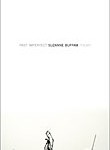 Suzanne Buffam appeared in the first Breathing Fire anthology in 1995 and in Breaking the Surface in 2000; she won the CBC Literary Award for poetry in 1998. Buffam has been a rising star in Canadian literature, in other words, for a decade. She could easily have published a first book long before now; many have with less impressive C.V.’s. It says a great deal about her dedication to the private art of poetry, I think, that she has not rushed her work headlong into the public marketplace. It is noteworthy, for instance, that none of her Breathing Fire poems are included in Past Imperfect, nor are her CBC award winners, which says to me that she does not take the endorsement of others as proof positive as proof of artistic achievement.
Suzanne Buffam appeared in the first Breathing Fire anthology in 1995 and in Breaking the Surface in 2000; she won the CBC Literary Award for poetry in 1998. Buffam has been a rising star in Canadian literature, in other words, for a decade. She could easily have published a first book long before now; many have with less impressive C.V.’s. It says a great deal about her dedication to the private art of poetry, I think, that she has not rushed her work headlong into the public marketplace. It is noteworthy, for instance, that none of her Breathing Fire poems are included in Past Imperfect, nor are her CBC award winners, which says to me that she does not take the endorsement of others as proof positive as proof of artistic achievement.
There are parallels to be drawn between the poems of Buffam and Coluccio. Buffam, too, has a terrific sense of humour, but it tends to manifest itself more in understated wry lines than in the stagey jokes Coluccio favours. “Please take back the sparrows,” she pleads, “They are bothersome and cute.” Elsewhere: “My hair has grown well past my shoulders,/a feat I achieved by not cutting it.” Humour is not the six-cylinder engine that it is in First Comes Love, but on piston in the works.
In “Meanwhile,” a brilliant sonnet reminiscent E.E. Cummings in the unparaphrasability of its semantic and grammatical twists and of Hopkins in its dense clusters of stress and internal rhyme, Buffam shows she is no slouch with traditional prosodic tools. Here’s the octave:
But could not keep so let seep in the wind.
So rolled the windows down and let it roar.
So felt the fingerbones inside me find
the fingered thing inside this foreign core.
So thickened by the inches, minutes, and the miles,
it hurled us into onwards and so through
the wet blue rolling landscape meanwhile’s
made of where we’re quickened and most true.
Throughout the book, Buffam plays very close attention to the way things sound, but this degree of strict patterning – along with one other poem in linked tercets, “Stones,” a tricky nonce form in which the terminal word in the third line of each stanza is also the terminal word in the second line of the next stanza – is the exception. Several of the poems, in fact, are typeset in prose. As with Coluccio’s choice of stanza forms for his comedy and satire, Buffam’s formal decisions are equally appropriate to her concerns. Her poems tend to be intellectual and metaphysical meditations which pair well with the pensive pace and synthetic rhythms of a prose line. The subtle craft she employs, including generally simple, unremarkable diction, complements the subtlety of her psycho-spiritual investigations.
This is not to say that Buffam privileges head over heart. On the contrary, her poems are, in their restrained fashion, deeply emotional. In one of her best, “Sir Gromore Somyr Joure,” the speaker starts off reminiscing about a “happy station full of sunshine and cabbage,” and proceeds through a quirky, loosely connected series of images, remembrances and impressions, concluding
Wherefore was the question on everyone’s lips
though none spoke it, nor plucked it away
but let it hang there like an overripe pear
left out for the gleaners to dispute in the fall.
Had the poem ended here, it would have most of the signature ingredients of a Buffam poem, but it would not be much on the whole. But the poem does not end here, it turns, like the volta in a sonnet, and Buffam’s meandering eye comes into sharp focus, as if shaken out of a reverie:
Every horse had three different names, each one
more purple than the last. Sir Gromore Somyr Joure
took the day every day until the very day
he retired. Did I love that dark horse?
I did not. His breath stank of cabbage.
He bit the hands that fed him. He would stand
in bad weather and refuse the boxwood gate.
But I was there in the fray and the fanfare,
I was there in the dooryard, and I was there
when they laid him down cold to the earth.
There is nothing directly stated here about the speaker’s feelings, beyond her perfectly unsentimental denial of love for the horse. But the pathos in the lines meant to demonstrate that lack of love show that the speaker actually identifies with the balky horse, and make the concluding line, with its unheralded triple meter, extremely moving.
While Buffam’s poems are not as immediately accessible as Coluccio’s, they don’t shut out the reader. They exist in a kind of liminal space. The speaker often finds herself between one place and another (which then turns out to be not such a different place at all), between waking and dreaming, between “cosmic dust” and terrestrial dirt, between togetherness with and separation from a lover. Buffam’s speaker is relentlessly restless, and constantly caught between the facts of the world and the facts of her own emotions. She is ever in search of something undefinable, or perhaps constantly fleeing the definite, but “Even standing very still like this is a kind of white lie. There is how I feel, and there is this hurtling surface. It is impossible to say something true for all time about either.” This has ever been the poet’s dilemma: the finite human in the midst not only of an infinite universe, but also of a world of mostly unknowable finite fellows. Buffam does not shy away from it, as many would-be poets do, by satisfying herself with pat conclusions and trite pseudo-wisdom. Her poems are no more difficult than life’s ongoing negotiations.
Like Coluccio, Buffam displays a marked distrust for the standard literary manoeuvres. Her opening poem is “Another Bildungsroman,” a title clearly exasperated with Canlit formulae. The poem ends not with the speaker older and wiser, or with any one of a number of standard epiphanies, but with “gaps in the sky the sky fills in with sky.” The skyward glance is a leitmotif of this book. Whereas Coluccio’s poems are filled with the particular concrete details of his surroundings, Buffam’s inhabit the either and cannot be placed in space and time. This is because their geography is interior – spiritual, broadly speaking; Space and Time, and the individual subject’s shifting place in the continuum, are her chief preoccupations. Buffam’s business is to “Look more closely from farther away,” as she puts it in Past Imperfect’s second poem, in which a Japanese airforce pilot cum “amateur astronomer” “serve[s] the night sky from below, which he believes, is like searching for yourself.” Tropes of rapprochement and retreat recur frequently and the book as a whole is laced with archetypal motifs: wind, windows (and other glassy frames through which we either see or in which we see ourselves: mirrors, seas, lakes, ponds), doors, stars, moon, light, shadows, the future. The cycling of such stock tropes, in a lesser poet’s hands, could result – and often has resulted, as in recent work by Lorna Crozier – in a kind of soft-focus mystical haze. Buffam’s control of her materials, however, her unflinchingly unsentimental gaze and the variety of her formal approaches, keep the repetition from being unconscious tics; they feel more like intentional stitches binding the work together.
That said, tightness is not an entirely positive thing, particularly for a first collection. There is something to be said for a collection like Coluccio’s that shoes the young poet trying out different voices, blundering occasionally. When I read a book like Buffam’s, I find myself wondering what the poet has withheld, what she has left out, and what she has denied herself in terms of expressive possibilities. Past Imperfect is almost too tidy, especially in contrast with the uncertainty and insecurity of its speaker – as though the speaker has figured out a great deal more than she pretends; as though the poet has “found her voice.”
Some of Buffam’s influences can be gleaned from her work. Stephanie Bloster highlights Hopkins and Dickinson, to which I would add Avison, Stevens and Bishop, but, unlike Coluccio’s affinity for Larkin’s cadences and moods, none of her poems too closely resembles any one of that august group of metaphysical questers. If anything, Buffam’s poems too often resemble Buffam’s poems. The less remarkable pieces in the collection drift close to self-parody (particularly in her tendency to end poems with a paradox) or paraphrase of the more impressive achievements – or, as she puts it herself in the book’s concluding poem, “My voice has been described as nondescript, yet I continue to use it.” Future work will demonstrate whether reservations on these grounds are justified. If Buffam’s next book is much like this one, it will likely be a strong book, but it will be disappointing because it will mean that a very talented poet is treading familiar water – or scanning familiar skies. But given the patience and perseverance she’s displayed to-date, and given the obvious restlessness of her intelligence, don’t be surprised if Buffam turns out something completely different. Or perhaps she’ll find a way “to change things by staying the same.”
Reprinted from CNQ 75 Winter 2008/2009 with permission from the publisher.
Zachariah Wells is the reviews editor for Canadian Notes & Queries magazine. Recent publications include, as editor, Jailbreaks: 99 Canadian Sonnets (which contains sonnets by both Pino Coluccio and Suzanne Buffam) and Anything But Hank!, a children’s book co-written with Rachel Lebowitz and illustrated by Eric Orchard. You can visit him on the web at www.zachariahwells.com or at his blog, Career Limiting Moves.

